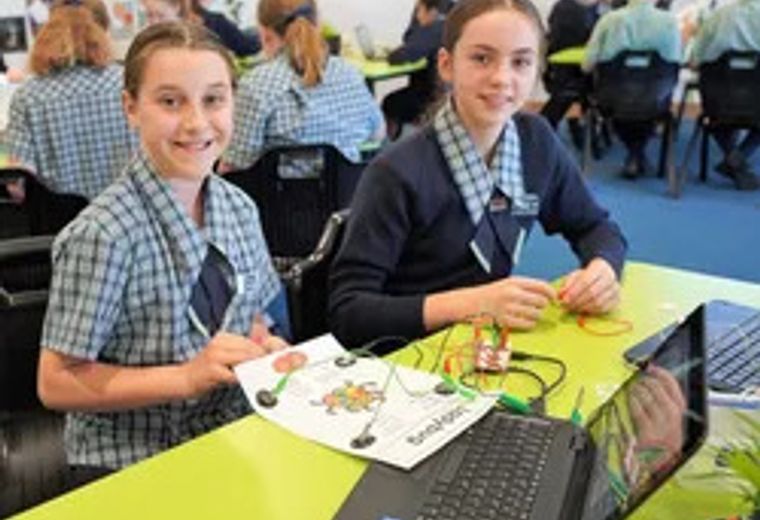The Connected Curriculum

ThINQ Framework - Primary Campus
Educational theorists such as Bruner and Gardner, have long argued that the focus of teaching curriculum content should enable teachers to make connections between learners’ existing knowledge and their individual learning styles in the context of new experiences. This challenge can be addressed by providing opportunities for students to build and refine knowledge through the vehicle of structured and guided inquiry. Inquiry allows students to be actively involved in their own learning and to take responsibility for that learning. Inquiry allows each student’s understanding of the world to develop in a manner and at a rate that is unique to each individual.
Coomera Anglican College - Primary Campus is prioritizing guided inquiry as the vehicle for developing both a student-centred and student-driven curriculum, with our primary teachers recognizing their responsibility in preparing young people as global citizens in an ever-changing world. It is developing in our students a mindset and a disposition for learning that fosters the habits and attitudes that enable resilience, confidence and risk-taking. Students who are more aware and confident in the way that they learn, can learn more efficiently and effectively.
Our innovative and contemporary ThINQ Framework recognizes that the construction of meaning and, therefore, of understanding is complemented by the students acquiring and applying a range of skills. These skills are best developed in the context of authentic situations such as those offered through our inquiry units.
The acquisition of literacy and numeracy skills, in its broadest sense, is essential, as these skills provide students with the tools of inquiry.
However, we believe that in order to conduct purposeful inquiry, and in order to be well prepared for lifelong learning, students need to master a whole range of skills beyond those normally referred to as basic. These include skills, such as, but not limited to; time management, deep questioning, critical thinking, metacognition and presenting research findings. Skills that are relevant to all learning areas across a broad and rich curriculum.
As we implement our unique ThINQ Framework at Coomera Anglican College we are planning and implementing the explicit teaching of these skills within our inquiry programme. Teachers are focusing on the development of rich, relevant questions, spending less time talking and more time facilitating while prioritizing both knowledge and skills that are relevant and significant to the students in our College. Feedback and reflection, reflection, both hallmarks of our ThINQ Framework, are integral in the planning, implementation and assessment of our inquiry units. Allowing time for reflection allows our students to grow and develop in their meta-cognitive skills while giving students time to stop and think about why and how they learned, not just what.
Planning and implementing an inquiry programme founded on the explicit teaching of our ThINQ skills is not for the faint-hearted, and teachers regularly collaborate as they carefully plan, select relevant content and encourage practices that build College culture. By continually embedding questions such as What am I learning to do? What am I learning to be? How am I learning? we build learning power in our students. By cultivating this climate of curiosity, questioning, mindfulness and reflective meta-cognition we place the learners in the ‘driver’s seat’ as they become responsible for their own learning path, a path that indeed develops them as reflective life-long learners.
